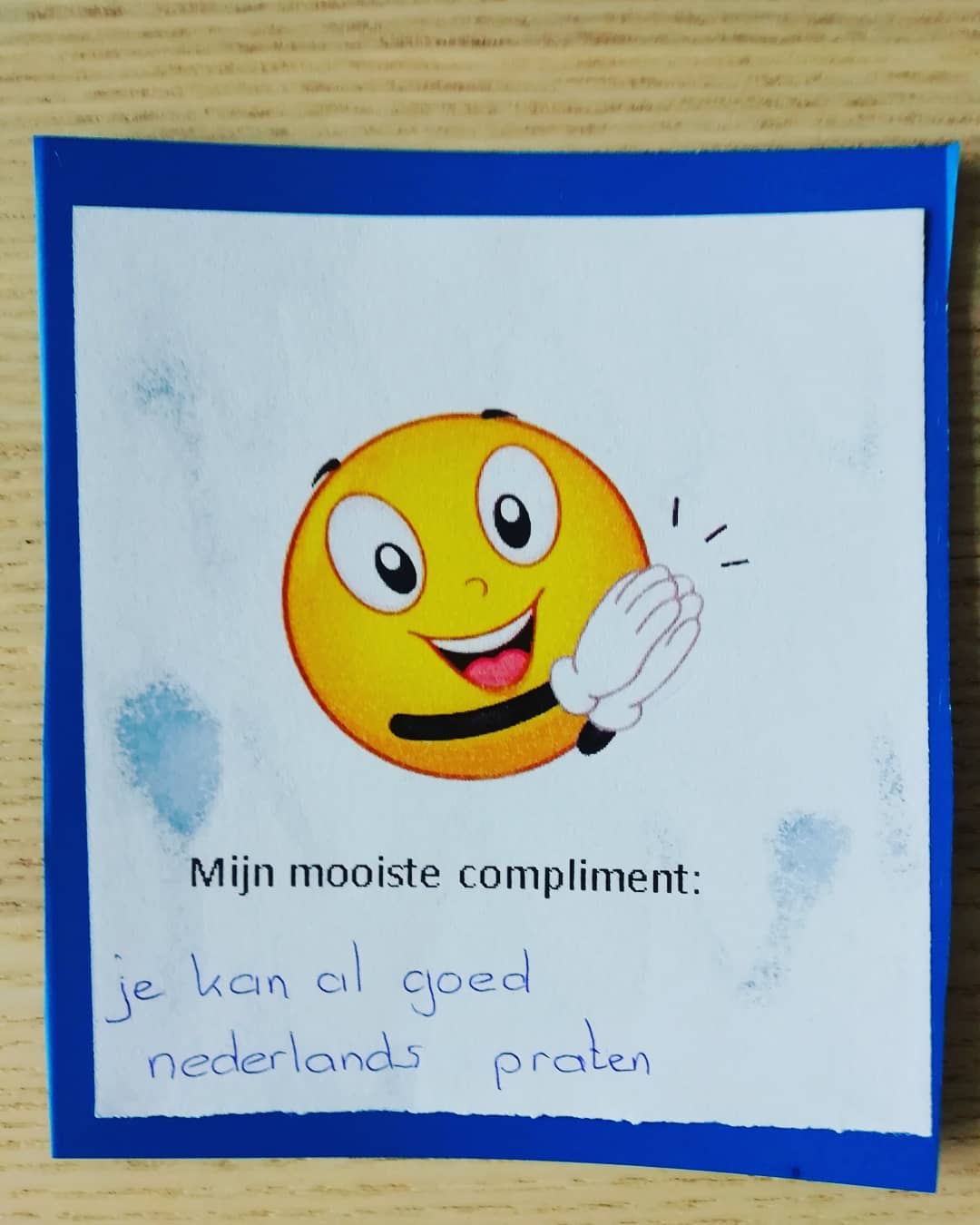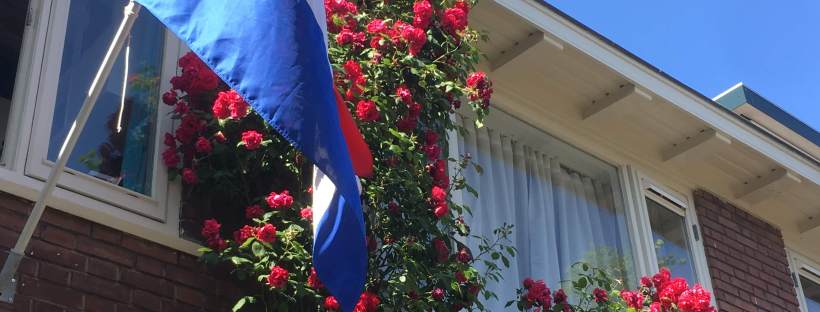Hello! This post has been much longer in the making than I intended. The reason is actually related to the topic however. I’ve been busy with interviews and such, but I’m happy to say I’ll be teaching Group 1 (Pre-K) next school year at an international school in Amsterdam! It is a Dutch International Primary School, which means that while the teaching is in English, it is subsidized by the Dutch government, and part of the public school system. (Side note: many types of “speciality” schools- Montessori, Waldorf, Dalton, religious- are publically funded here. Choice in education is highly valued). Because of this, I will get to know the education system from two perspectives now: as both a parent and teacher.
Joe is completing his first year here (today in fact!), and so I have a year of interesting observations to write about. The vast majority are quite positive, with just a few things I’ll have to get use to.
Before I dive into this, I realized I neglected to mention some of the really great benefits available for children/families in my last childhood post. In an effort to help those who may be moving here, this is a brief list with links for more information:
- Health insurance is free for children until the age of 18.
- There are a variety of child benefits to apply for. Some are income depended, some are not– examples include:
- Children’s Allowance (a quarterly payment that shows up in your bank account based on the age of your child/children). In our case, we receive about €200 every 3 months. You receive this amount for every child you have, and this is not income dependent.
- Child Budget (income dependent, single parents receive more)
- Childcare Benefit (monthly, income dependent allowance for daycare, and/or afterschool care). In our case, around 50% of the after school fees will be covered.

Joe: Already jaded by the beauty around him. Also could care less that his health care is free. Let him know when snacks are free, then he’ll care.
Now! On to the show! Reflecting on this first year of Joe’s Dutch school experience I have many positive feelings. His school is lovely, his teachers, his friends… everything about it has made our move 100x easier. As a preschool teacher, I have seen how resilient and quick to adapt young children can be. We knew if we wanted to make this big move, earlier was better in regards to Joe’s language acquisition, and of course his social adjustment. Despite my insider experience, I couldn’t help but worry that Joe would be an outsider, and unable to adapt. Well, here we are on the last day of school and I can say he’s proved that worry wrong. He received a great end of the school year report, he’s made many friends, and overall enjoys school very much. Any complaints he’s had are nothing out of the ordinary for any five year old (Why won’t the teachers let me bring my ear-bursting remote control dump truck to school?! They’re so mean!)
In regards to his language, he seems to be what I’d call school-fluent. He understands and speaks Dutch very well in his school/play environment. When he has friends over for playdates, I honestly have no clue what’s being said. They could be plotting world domination for all I know. At the playground recently a child approached big Joe and I, and began telling us about his “Poesje” (cat). We smiled and nodded, assuming he was telling us some nice story about his cat. Joe informed us however, that the kid was actually telling us his old cat got sick, and died…… oops. Thank goodness for our translator, we quickly changed our expressions to a sorrowful frown.

A compliment from school: “You already speak Dutch well”. Note the greasy fingerprints (pretty sure he carried it around all day).
In addition to saying that Joe is doing well, and I am proud of him… here’s a list of some of the more interesting things I’ve observed so far:
- Expectations are different Joe just finished Group 1, or the equivalent of Pre-K. His year was entirely play-based, and focused on social/emotional skills. Academics (pre-math, pre-reading, etc.), were woven into play naturally, and were only a very small part of his year end report. I believe (and hope!) that most Pre-Ks in the states are similar. All of the ones I taught at were (or I wouldn’t have taught there!). The biggest difference however will be this next school year. He will be entering Group 2 (Kindergarten). Unlike most public schools in the states, this year is not when formal reading and writing instruction is introduced. Group 2 is another year of play-based, social/emotional focused learning, with gradual exposure to academics based on the children’s interest. Group 3 (First Grade), is when more formal instruction begins. If a child is not ready for this type of learning, they can repeat some or all of Group 2. There seems to be a lot less stigma regarding repeating grades (aka doing what is developmentally appropriate for individual children). Also of note, homework is not assigned until Group 5 (Third grade), and even then it is limited to once a week.
- Traditions are important There are a variety of holidays, events, and traditions that seem to be very important to Dutch culture. As a result, these things are very much a part of the education system. Sinterklaas, for example–a rightfully controversial, but very joyful Children’s celebration–seems to literally take over the schools from mid-November-December 5. I am sure I’ll write an entire post in the future on this one! It’s huge. Sint Maarten (a kind of beautiful, less commercialized Halloween), Koningsdag (the King’s birthday), and children’s/teacher’s individual birthdays are all given a lot of attention as well.
- There are many special events Sports Day, parties, musicals, the list goes one. My very favorite events were the Christmas dinner, and the School Disco (yes, the word disco is used to mean a dance). For Christmas dinner, the children and teachers dressed up in their best (some in suits!), and brought a dish to share for a special dinner after-hours. The lights were dimmed, with only child-made candles and the Christmas tree lighting the rooms. While the children dined with their peers and teachers, parents were invited out to the courtyard for socializing, and hot mulled wine. It was very, super, gezellig. The School Disco, held in February, was a themed after-hours dance for all students (divided by age groups). The gym was decked out like a prom, and children came without their parents for some dancing and snacking. I thought it was pretty amazing that my four year old was attending his first dance, I didn’t have one until middle school!
- Practical skills are taught In addition to the traditional academics you’d expect, there is also an emphasis on important life skills/knowledge within the Dutch education system. Examples include cycling safety (I often see masses of children wearing safety vests biking around the city with their teachers), swim lessons (all children are expected to receive a swim diploma), and sex education in every grade- yup, that includes the four year olds! I consider myself a progressive educator, but even I was stumped at how the school would address this topic with the youngest children. The answer is of course, in a very honest, but developmentally appropriate way. “Spring Fever” took over as a theme for an entire week in April, and each grade had specifics to learn. Joe’s first introduction covered the basics- focusing primarily on safety…private parts are private, and what is and isn’t acceptable. What I was most impressed with however, is that the program also discusses the idea of love, and what people may do when they love each other. Essentially, it’s laying the foundation for the years to come when the students are taught that sex is something that happens in a loving relationship. It is completely normalized, with very important aspects, like mutual consent and enjoyment, emphasized.

Just your average preschool reading material…
So these notes I’ve made are but a few of the things I have really enjoyed as a newcomer to the school system here. Of course, there are a number of things I’m still working to get use to (and don’t necessarily love…) Some of these things are:
- School scheduling is very different Joe has not one, but TWO half days a week. At first, I thought this was because he was young, and maybe they wanted the little ones to get some rest. But nope… I realized about a month into the school year that EVERYONE leaves at noon on Wednesdays and Fridays. This is both a blessing and a curse. Of course, it’s wonderful that the kids don’t spend all of their productive hours at school… there is time for playdates, chilling at home, swim lessons, judo… and of course, perusing the grocery store in large, noisey gangs (a popular pastime with kids 12 and up). You might ask: how do the children have time to learn anything? The answer is simple: summer break is not the average 2.5-3 month break it is in the states. It’s 6 weeks. Yup, I’m ok with this as a parent for obvious reasons… but as a teacher, this will take some serious getting use to.
- There is a “school doctor” and they work together with teachers and families. What’s wrong with this? Well, nothing really… I suppose it’s quite practical. But I have to admit, when I went in for Joe’s first teacher conference and the teacher had doctor’s notes that I had not even seen yet myself…I was pretty shocked. Everything was fine in our case, but I just can’t imagine this happening in the U.S. There are some pretty legit reasons why you may want your child’s medical records kept separate from their school’s… so it’s definitely something I’m still adjusting to.
- I have been warned about standardized tests Yes, even a really warm, progressive, and individualized education system like we have here… there is no escaping THE TESTS. I have not had the time or brain capacity to fully explore how they work. I just know they’re coming, and a lot of people don’t love them.
Whew! I feel like I said a lot in this one. Thanks for sticking with me or at least skimming the headlines like I usually do. I hope I’ve helped someone out with this information… or at least entertained you with the photo of the sperm picture book. If you’re interested, it IS available in English- under the amusing name Where Willy Went.
Stay tuned for my next post soon- I’m planning to share Joe’s #1 favorite “best day of my life” thing to do in honor of summer break!



Loved it! What are the universities like over there? Cant wait to hear about Joe’s #1 Favorite thing to do!
LikeLike
The universities are very good! Also, a year costs about the same as one CLASS in the states!
LikeLike